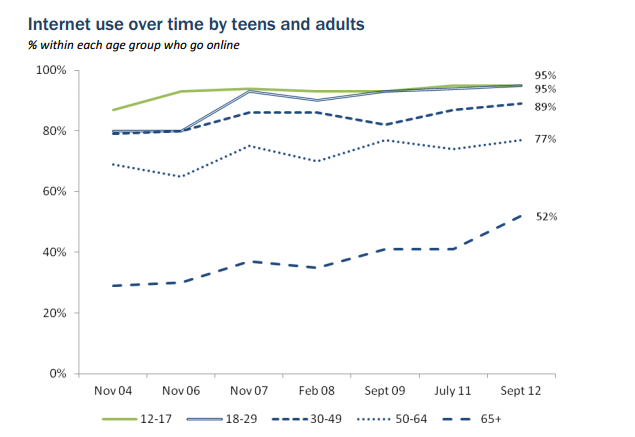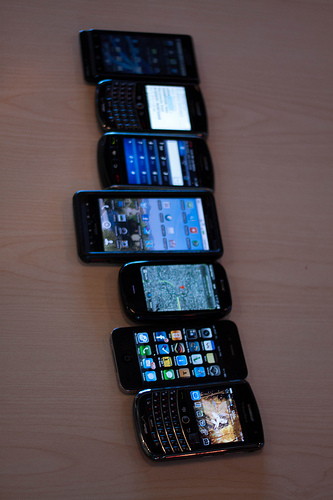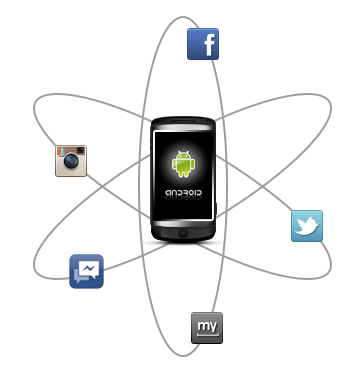The internet is a truly wonderful thing. Never in history has so much information been so readily available. All it takes is a query and a few pecks on a keyboard for a person to immerse themselves in books, videos, periodicals, tutorials and countless other forms of media. However, as information amasses in databases all across the web, so does material that is unsuitable for younger audiences.
Getting Smart About Smartphones and Other Technology
Our latest guest post comes from Ziqian (Cecilia) Dong, Ph.D., Assistant Professor, New York Institute of Technology. Here, Dr. Dong discusses how parents can help teens get smart and stay safe on smartphones, even if the parents themselves are a little in the dark when it comes to the technology.
Foster Kids Might Need Extra Protection From Identity Theft
Foster children are especially vulnerable to various ID theft types, because their Social Security Number and other personal data is accessed by many so many people at various stages of the foster care process, the Huffington Post reports. This results in credit problems that often go unnoticed until the child reaches adulthood and tries to establish credit for him- or herself.
Parenting Changes in the Digital World
This is a guest blog post from Anne Collier that was originally published on The Christian Science Monitor. Anne is editor of NetFamilyNews.org and co-director of ConnectSafely.org, a Web-based interactive forum and information site for teens, parents, educators, and everybody interested in the impact of the social Web on youth and vice versa. She lives in Northern California and has two sons.
Digital Parenting on Wireless Devices for Safe Children
Digital Parenting is controlling the parameters of digital life with children. It is important for parents to learn how to play and teach their children to play it safely. It is obvious our world and lives are going to continue to revolve around digital sources. Wireless is infiltrating most every sector of the lives we lead. Parents need to become familiar with how to protect their children.
Here are five important tips to keep children safe in the digital age:
Family Intelligence and Education
-
Develop safe practices and rules for the family on mobile device usage. Everyone in the family should subscribe and adopt the rules. These can be as easy as: "Never use my phone to harm others", and "Remind all drivers to never text and drive".
Keeping One Step Ahead of Kids in a Mobile World
We loved this post from Monica Vila over on Mashable so much that we thought we had to share it with our readers! Monica is co-founder of TheOnlineMom, an organization that provides technology education to families and helps moms connect with brands they can trust. Here is her take on keeping one step ahead of kids ina mobile world.
Kids Using More Devices Than Ever Before
How many Internet-enabled devices are in your home right now? The average two-person family owns seven connected devices. Families of three or more own an average of 10. Between tablets, laptops, smart phones, gaming systems, and music players, your family may have as many as 15 or 16.
While it relieves parents to know their children can connect with them and get help whenever and wherever they need it, the proliferation of devices is changing the face of “digital parenting”. Just a few years ago when the average number of household devices was much lower, it was easier to keep tabs on those few devices that your child had access to. Now that it is hard to even keep track of what devices your child is evening using, the days of “parental control” seem to be behind us.
Why You Need To Treat Your Child's Cell Phone Like a Computer
Digital Safety Rules You Should Definitely Enforce In Your Household
The world of parenting has evolved at a rapid pace in the recent past. Though the internet has been around for a few decades now, the access and content of this virtual world has changed drastically. Though we may not want to police our children to the point that they feel they are being virtually "jailed" we are right to set guidelines in this world as we would in the physical world. We don't hesitate to set boundaries about how far our children may roam on their own, and this same rule should apply to the internet.
Here are a few basic tenants to follow in digital parenting:
-
Children should allow parents assess to all of their internet passwords, which can include email. This is necessary in school, for parents must assess their children's homework through email and class websites. In addition to this, children should not have the freedom to own accounts that their parents cannot view. At some point in their adolescence a parent could revisit this idea, but it is certainly prudent to follow this guideline while a child is in their formative years.
Newest Pew Research Center Study Has Big Impact On Online Parenting
Have you seen the results from the newest study done by Pew Research Center about teens and technology? You need to be reading it right now, the results will shock you. Here are some of the key findings:
-
78% of teens now have a cell phone, and almost half (47%) of them own smartphones. That translates into 37% of all teens who have smartphones, up from just 23% in 2011.
-
23% of teens have a tablet computer, a level comparable to the general adult population.
Is Your Child Ready for Their First Phone?
It seems like children are getting cell phones at younger and younger ages today. As a parent, you're probably asking yourself, "Is my child ready for their first phone?" While only you can answer that question for your child, there are a few things to keep in mind when making this all-important decision.
How To Keep Kids Safe With Social Media: From A Detective's Viewpoint
Social media can be a scary thing for parents. More and more people are joining Facebook and Twitter every day; and many of those people who join these social networks are children and teenagers. Social media has taken the place of the "playground", in that predators no longer need to physically hang out with children to obtain access to them.
In Missouri, one school is taking the steps to inform parents about how to keep their kids safe with social media. Detective Ed Bailey of the Southwest Missouri Cyber Crimes Task Force recently attended parent/teacher conferences at Carl Junction High School to talk to parents about the importance of online safety for their children. Detective Bailey stated that the key is to get kids to understand how much of their personal information needs to be safeguarded at all costs. And since many kids generally operate in an "it will never happen to me" frame of mind, getting the message across is difficult.
How to Monitor Your Child's Text Messages
Since cell phones are pretty much in our every day life, of course children will want their own phone to send and receive message to their friends. There is no problem with this if you feel your child is responsible but you’re worried, you can still have the authority to monitor their text messages. Text message monitoring does not make you the bad guy, its actually a helpful cause especially if you think your child is being bullied over texts or sending inappropriate things. Keep these tips in mind if you’re looking to monitor their messages.
Talk With Your Child
Are You Sending Your Kid Back to School With a Smart Phone?
Back to school shopping sure is different than when I was a kid. The most high-tech item on my list was maybe a graphing calculator.
Now many schools are embracing new technology and running with it. Teachers send out class updates on Twitter and iPads are regularly used in the classroom, even for preschoolers. Maybe tablets and smart phones aren't on the official school list, but they're probably on your child's wish list for back to school.
4 Reasons You Have To Get Your Teen a Smart Phone
There's no end to the functionality of a smart phone. It's easy to dismiss your child's requests (or desperate pleas) for a smart phone without really thinking about it. But here are 4 really worthwhile uses for a smart phone that every parent can appreciate.
-
GPS. Kids get lost, and GPS isn't just for cars. Wherever they are, GPS helps them find their way home. And there are services you can subscribe to that will leverage the GPS
8 Signs Your Child Is Ready for a Cell Phone with Parental Controls
 It may not happen until your child is 16, or it could happen as early as 6 – sooner or later, he is going to ask you for a cell phone. And when your child does, how are you going to answer? Your child's safety is a big deal, especially on a mobile phone, and you might want to consider parental monitoring or parental controls.
It may not happen until your child is 16, or it could happen as early as 6 – sooner or later, he is going to ask you for a cell phone. And when your child does, how are you going to answer? Your child's safety is a big deal, especially on a mobile phone, and you might want to consider parental monitoring or parental controls.
A cell phone, especially a smart phone, is a big responsibility. Here are 8 indicators that your child is ready to handle one.
-
He has shown responsibility with other big-ticket personal items
7 Tips for Creating a Facebook for Kids and Parents "Friendship"
Friending kids on Facebook helps you to stay connected and keep them safe from danger. But many kids feel trepidation about friending their parents.
Many parents who approve of Facebook for kids like to "friend" their kids to do a little parental monitoring. Doing something annoying or embarrassing might mean that you get unfriended, so use these tips to be a good Facebook friend to your child:
-
Pick your battles. If you are going to be Facebook friends with your child, it's pretty much guaranteed that you're not going to like everything they post. If you want to remain friends, don't mention the little infractions (their use of certain 4-letter words, for example) and stick to the big issues where their safety is really at stake (cyberbullying, sexting, dangerous friends, or sharing sensitive information.)
Global Perspective on Cyberbullying
Every few months, a new study is released in the United States or the U.K. giving new statistics and information regarding cyberbullying – the act of minors who threaten or harass each other (sometimes with serious consequences) using technology. But what might larger cyberbullying statistics across the globe, not just from one country, look like?
In a January 2012 survey for Reuters News, global research company Ipsos polled a total of 8,600 adults from 24 different countries to get a better feel for cyberbullying across the globe. The countries surveyed were Argentina, Australia, Belgium, Brazil, Canada, China, France, Germany, Great Britain, Hungary, India, Indonesia, Italy, Japan, Mexico, Poland, Russia, Saudi Arabia, South Africa, South Korea, Spain, Sweden, Turkey and the United States of America.
What's the Right Age for a Cell Phone? Kids' Safety a Factor?
How old was your child when they got their first cell phone? 14? 12? 8? If your pre-teen is begging you for a phone of their own and telling you that “all their friends” have one – they're probably not lying. The average age of kids who receive their first cell phone is falling like a brick. So how much does kids safety come into play?
A Pew Internet Forum survey in 2009 asked parents of cell phone owners the question, “How old was your child when s/he got her/his first phone?” The average age was 11-12. Of kids who owned cell phones, 46% got them in the 11-12 year age bracket.
A Kids Safe Game for Girls: CookingGames.net
Online gamers used to be mainly teen boys interested in playing first-person shooter and car racing games. But the face of online gaming has changed significantly in recent years. CookingGames.com is one of the many recent start-ups that caters to the preteen girl gamer market. Its tagline? “Why should boys have all the fun!”
The free kids safe games at CookingGames.net are very simple, brightly colored, animated games with titles like Pink Girls, My Cute Puppy, and Justin Bieber Pizza Pasta. The free gaming site started out offering nothing but cooking games (variations of decorating your own pizza, cinnamon roll, birthday cake, and so on,) but has recently begun to offer additional categories like dress up, make up, kissing, decorating, and puzzle and word games.
The site is purportedly a safe site for girls ages 4 to 14, but that doesn't mean parents shouldn't be there to supervise. The kissing games are relatively innocent, but because the main object is to kiss your partner for as long as possible without being caught it is obviously not age-appropriate for some visitors to the site.



.jpg)














